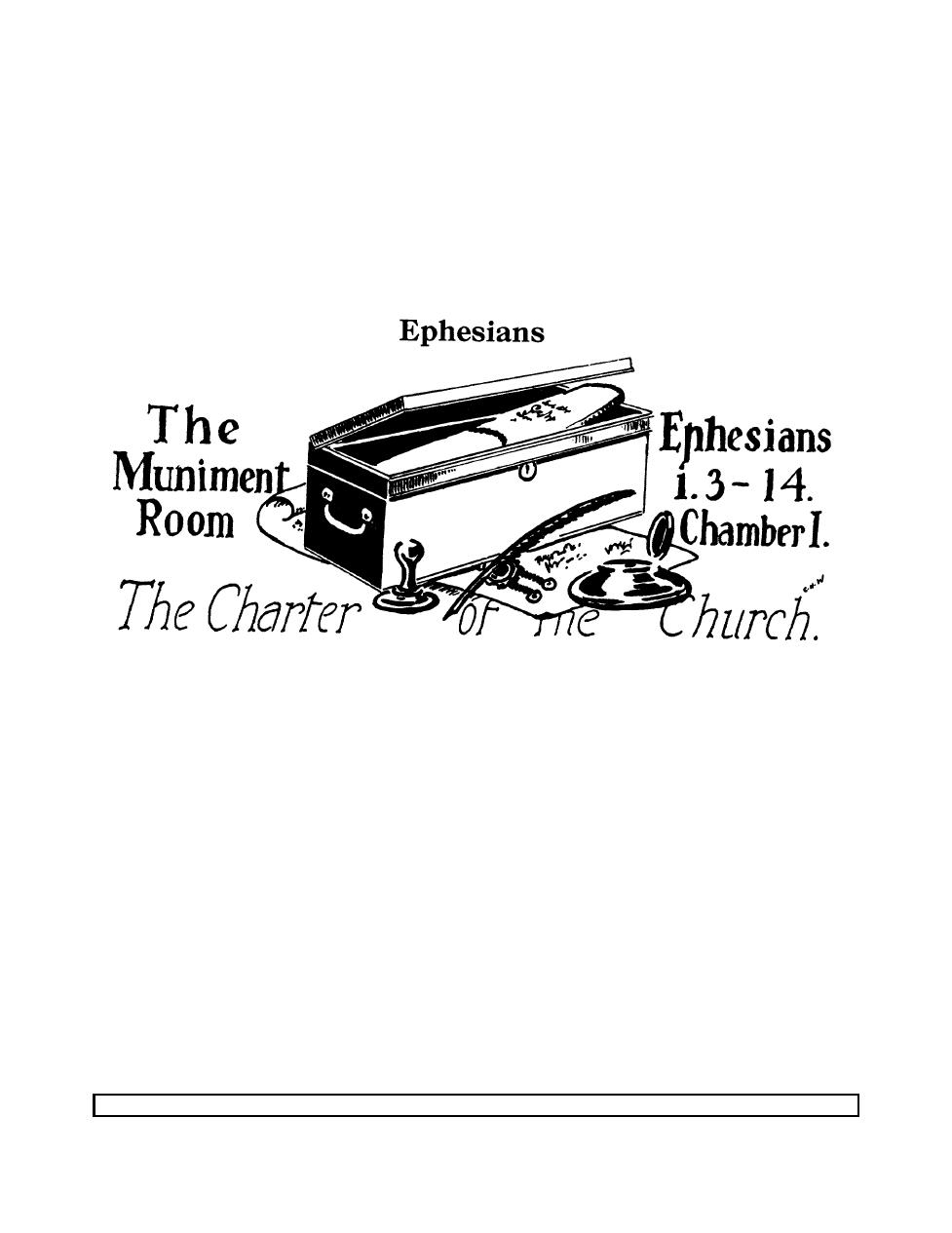
`Almost as generous a scale as in a Pauline epistle'.
The apostle, while not offending common decency, did not overload his
letter with salutation and greetings, and chose under inspired guidance two
words that would express not only a conventional greeting, but which would speak
to the heart of his reader, for charis was the light-hearted salutation of the
Greek, whereas peace was the more solemn greeting of the Jew. Here the apostle
combines them both, and such in effect is the glorious doctrine that he taught.
The Charter of the Church
Ephesians 1:3-14
Having read the address and salutation of this epistle, we now approach
the subject matter which commences with the third verse. The reader will
remember that we have set out the disposition of the doctrinal and practical
portions of this epistle under the figure of a great house, having two
corresponding wings and a central tower. The first chamber that demands our
attention is called the Muniment Room, and the section of Ephesians that this
represents covers Ephesians 1:3-14.
The word `muniment' primarily means `a fortification' and like `munition'
and `ammunition' is derived from the Latin munio `to fortify'. However, we do
not use the word in this primary sense, `the armoury' of Ephesians 6 being
reserved for that, for a `muniment room' has come to mean a room in a public
building such as a cathedral, college or castle in which deeds, charters,
writings, etc., are kept for safety. It is in this sense that the word is
employed today, and it is in this sense that we apply the term to Ephesians 1:3-
14, because in these opening words of the epistle we have `the charter of the
Church of the One Body'.
One way in which the teaching of these verses can be set before the eye of
the reader is to take the recurring word `according' as the pivot, and make a
simple alternation as follows:
kata in Ephesians 1:3-14
34